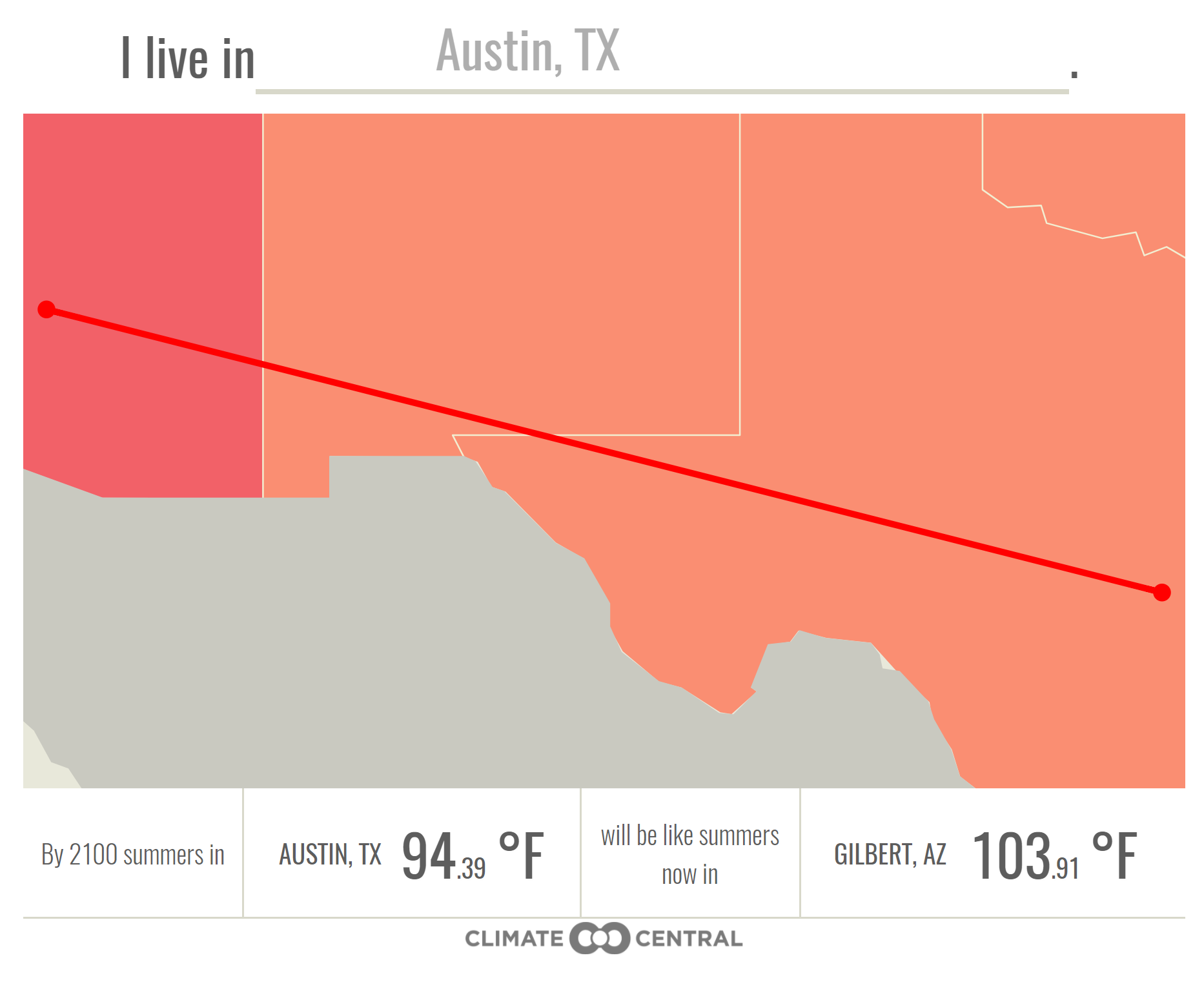Luke Metzger
Executive Director, Environment Texas
Executive Director, Environment Texas
AUSTIN – Environment Texas marked the first day of summer by urging leaders at all levels of government to tackle climate change. According to scientists at Climate Central, global warming pollution will fuel even hotter summers in the future. Temperatures in Texas are already 2.1 degrees hotter now, on average, than in the 1970s. Without action to eliminate global warming pollution, summer temperatures here in Austincould rise by 9.5 degrees by the end of the century. That would make summer days in Austin feel more like they do now in Arizona.

“With much hotter summers in our future, going to the beach won’t be enough to beat the heat,” said Luke Metzger, Director of Environment Texas. “Grab your phone along with your sunscreen and your water bottle, and then call your elected representatives. Ask them to cut pollution and shift us towards 100 percent clean, renewable energy.”. Without action to eliminate global warming pollution, summer temperatures here in Austin could rise by 9.5 degrees by the end of the century. That would make summer days in Austin feel more like they do now in Arizona.
Hotter temperatures put our health at risk. Extreme or long-lasting heat can overwhelm our bodies’ ability to cool, resulting in potentially severe problems like heat exhaustion. Infants, children and the elderly are particularly vulnerable.
Hotter summer days also mean unhealthy air. In 2016, Austin had 39 smog days where the air had elevated levels of ozone. Smog forms when pollution from dirty fuels or chemicals mix in sunlight. Breathing it can cause a wide range of health problems, from asthma attacks to respiratory illness.
“Here in Texas, the last thing we need is more air pollution and sweltering summer days,” said Metzger. “We can protect our health and our summers by cutting dangerous pollution and moving to clean, renewable energy.”
The Austin City Council has an opportunity to increase the city’s investment in renewable energy. Last night, the Electric Utility Commission recommended increasing the city’s wind and solar portfolio to 65% by 2027.
